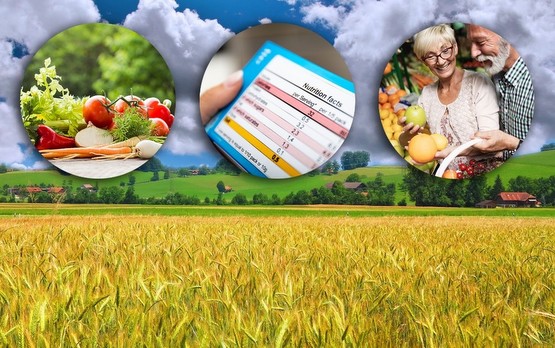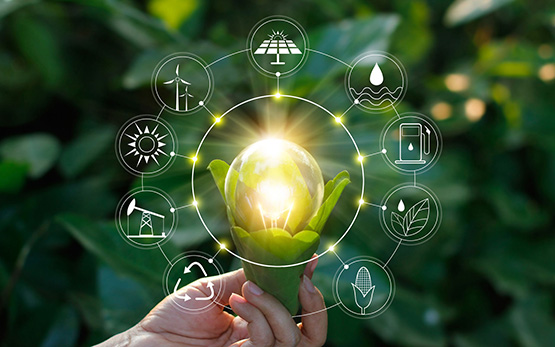The conclusion reached on the Agroscope Life Cycle Assessment Platform: making our diet more sustainable requires a holistic analysis of production, healthy eating, consumer decisions and the entire food system, as well as the involvement of all stakeholders.
"How can we feed ourselves in a healthy and environmentally friendly way?” was the subject of the twelfth Agroscope Agriculture and Food Sector Life Cycle Assessment Platform, held on 31 May 2022 and attended by 200 participants. And what contribution can meat and milk substitutes make in this context? Two talks were devoted to this question. Plant-based alternatives usually lead to lower environmental impacts, but many require more-intensive processing. Once the nutritional values are taken into account, the advantages of many alternatives decrease.
Various indicators have been developed in recent years to depict the contribution of foodstuffs to nutrition and their effects on health. Together with the information on environmental impacts, they are a prerequisite for sound decisions; still more is needed for behavioural changes, however. Consuming more wholegrain products and reducing meat consumption – particularly the consumption of processed meat – can achieve a great deal for both the environment and our health.
Improvements in food production alone are not enough to optimise the entire food system. They must go hand-in-hand with changes in food consumption and the avoidance of food waste.
International experts on the Agroscope Life Cycle Assessment Platform have highlighted ways to achieve an environmentally friendly and healthy diet. The individual talks and posters can be found at the link below.









